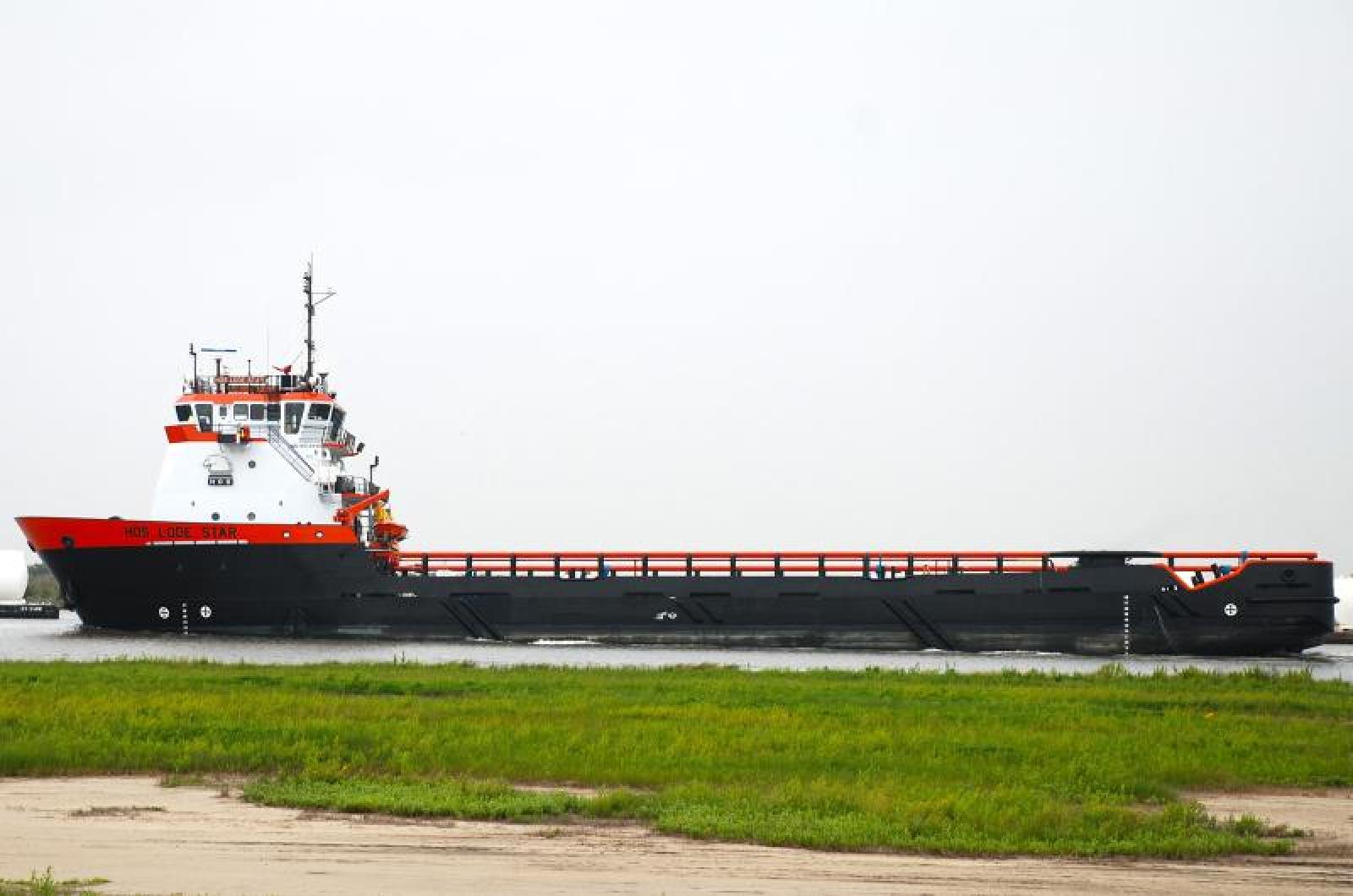The Steamship Authority board of governors will hold a special meeting next week to vote on a contract to convert three newly purchased vessels into freight ferries.
The board had been caught by surprise when it was announced earlier this month that conversion costs could be double the previously estimated amount. When the board had agreed last year to buy the three decommissioned vessels that formerly served offshore oil rigs in the Gulf of Mexico, general manager Robert Davis said the estimated cost of converting them into ferries was between $8 million and $9 million apiece — roughly the same as their purchase prices.
But shipyard bids received this month indicate the actual bills could come in at more than twice that amount, with the lowest bid estimating $20 million for each vessel.
“I … was very distressed at the miss on the numbers that you had put in front of us when we agreed to buy these vessels,” Martha’s Vineyard governor James Malkin said at Wednesday morning’s board meeting in Falmouth.
“We relied on these numbers,” Mr. Malkin said, adding that he also is concerned about the impact on the Steamship Authority’s capital budget.
Falmouth governor Peter Jeffrey requested a report on how the boat line arrived at such an inaccurate estimate.
“I would like the authority to figure out … why we were so off,” Mr. Jeffrey said.
“Knowing how and why we failed … will help us moving forward,” he added.
Mr. Davis told the board he and his staff are disappointed as well, but adding the three interchangeable vessels to the Steamship Authority fleet remains a priority.
“We’re not happy that we were so far off, [but] it is an important project still,” he said.
Mr. Davis said the authority is still working with the low bidder, Alabama Shipyard in Mobile, Ala., to bring down the cost, and asked for a special meeting next week to vote on the contract. A date was not set Wednesday.
Time is already growing tight if any of the boats is to be ready for service by next summer, Mr. Davis said, noting that the shipyard work is only part of the process.
The new ferries — renamed Aquinnah, Barnstable and Monomoy — also will need to cruise from Mobile to Massachusetts, and Steamship Authority crews must train to operate them.
This has to take place before the busy traveling season begins, Mr. Davis said, because by May and June the boat line can’t spare crew members for extended training.
The board agreed to hold a special meeting next week to act on the contract, but asked Mr. Davis to prepare an analysis of the disparity in estimates.
Board members also asked if one or more of the new vessels could go into service without being cut and elongated, as planned, to add more vehicle space.
Mr. Davis said he will raise that question with the shipyard as negotiations continue, but that it’s not clear how much of the total conversion cost would be saved by leaving the vessels intact.
For instance, he said, it costs more than $1 million per vessel simply to enter and leave the dry dock, a key shipyard facility where much of the work is done out of the water.
Mr. Davis also said he will revise the Steamship Authority’s capital budget once the board of governors has voted on a conversion contract.
Among other boat line business Wednesday, the board heard updates on the Woods Hole terminal construction, which is nearing 75% completion, and the new SSA website, expected to launch later this spring.
Mr. Davis also ran through a schedule for developing the Steamship Authority’s first-ever strategic plan, another top recommendation from the 2018 operations study.
Workshops with staff, the board of governors and the port council will begin in early May, Mr. Davis said, with the goal of drafting an outline by early summer, gathering input over the following months and presenting a finished strategic plan by the end of the year.
Following Wednesday’s public meeting, the board of governors adjourned to an executive session to discuss a lawsuit filed at the height of the pandemic by a group of employees who objected to the Steamship Authority’s vaccination mandate.
The employees’ quest for an injunction was denied by a federal court in March 2022. The group is now appealing their case to the First Circuit Court of Appeals, where briefs are due April 17.






Comments (12)
Comments
Comment policy »